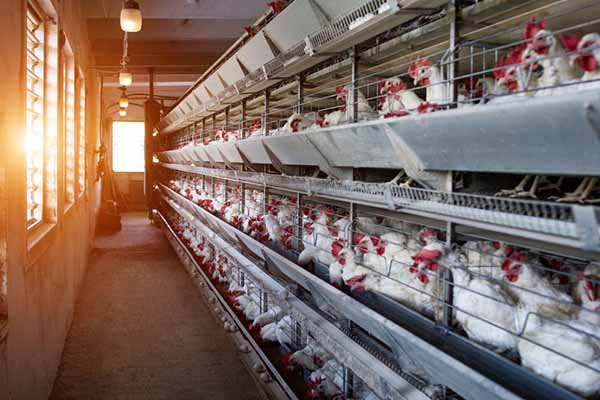How to Start a Chicken Farm in Missouri: A Comprehensive Guide
Time : 2025-06-29
Starting a chicken farm in Missouri can be a rewarding venture. Whether you’re looking to produce eggs for personal use or for commercial purposes, understanding the process and requirements to start a successful chicken farm is crucial. This guide will provide you with the essential steps, tips, and professional knowledge needed to start your chicken farm in Missouri.
1. Research and Planning
The first step in starting a chicken farm is thorough research and planning. This will help you understand the market, local regulations, and the requirements for raising chickens in Missouri.
1.1. Market Research
Research the local demand for chicken products in Missouri. This includes understanding the demand for eggs, meat, and other chicken-related products. Check out local farmers’ markets, grocery stores, and restaurants to identify potential customers.
1.2. Local Regulations and Permits
Before you start your chicken farm, you need to understand the local regulations and obtain the necessary permits. Missouri has specific regulations regarding the raising of chickens, including zoning laws and permit requirements. Check with your local county or city government to ensure compliance.
1.3. Business Plan
Develop a comprehensive business plan that outlines your goals, strategies, and financial projections. This plan will be essential for securing financing and understanding the long-term viability of your chicken farm.
2. Site Selection and Design
Choosing the right location and designing your chicken farm are critical to its success.
2.1. Site Selection
Select a location that meets your requirements and complies with local regulations. Consider factors such as accessibility, climate, and proximity to potential customers. Ensure the site has adequate space for chicken houses, pens, and feed storage.
2.2. Chicken House Design
Design your chicken houses to ensure the comfort and well-being of your chickens. Consider factors such as ventilation, lighting, and temperature control. Utilize professional-grade chicken equipment, including automatic feeders, waterers, and nesting boxes.
3. Chicken Breeds and Raising Practices
Choosing the right chicken breeds and implementing effective raising practices are essential for a successful chicken farm.
3.1. Chicken Breeds
Select chicken breeds that are well-suited to the Missouri climate and meet your production goals. Some popular breeds for Missouri chicken farms include the Rhode Island Red, Buckeye, and Barred Plymouth Rock.
3.2. Raising Practices
Implement best practices for raising chickens, such as:
– Providing a balanced diet with high-quality feed
– Ensuring adequate space for each chicken
– Implementing biosecurity measures to prevent disease
– Regularly monitoring the health and well-being of your chickens
4. Equipment and Facilities
Investing in professional-grade equipment and facilities is essential for a successful chicken farm.
4.1. Chicken Houses
Build or purchase chicken houses designed for your specific needs. Consider features such as automatic lighting, ventilation, and temperature control systems.
4.2. Feeders and Waterers
Utilize high-quality automatic feeders and waterers to ensure your chickens receive proper nutrition and hydration. This will also save you time and effort in managing your flock.
4.3. Nesting Boxes and Perches
Provide nesting boxes and perches for your chickens to lay eggs and roost comfortably. Ensure these are easily accessible and well-maintained.
5. Marketing and Sales
Develop a marketing and sales strategy to reach your target market and maximize your profits.
5.1. Direct Sales
Establish direct sales channels, such as selling to local restaurants, grocery stores, and farmers’ markets. This can be a great way to build relationships with customers and promote your chicken farm.
5.2. Online Marketing
Utilize social media, a website, and online marketplaces to promote your chicken farm. This can help you reach a wider audience and establish your brand.
6. Ongoing Management and Growth
Managing and growing your chicken farm is an ongoing process. Stay informed about industry trends, technological advancements, and local regulations to keep your farm profitable and sustainable.
6.1. Training and Education
Continuously educate yourself and your team on best practices in chicken farming. Attend workshops, read industry publications, and seek advice from experienced farmers.
6.2. Expansion and Improvement
Identify opportunities for expansion and improvement in your chicken farm. This may include increasing the number of chickens, implementing new technologies, or diversifying your product offerings.
Conclusion
Starting a chicken farm in Missouri requires thorough research, careful planning, and a commitment to best practices. By following this comprehensive guide, you can increase your chances of success and build a thriving chicken farm.












